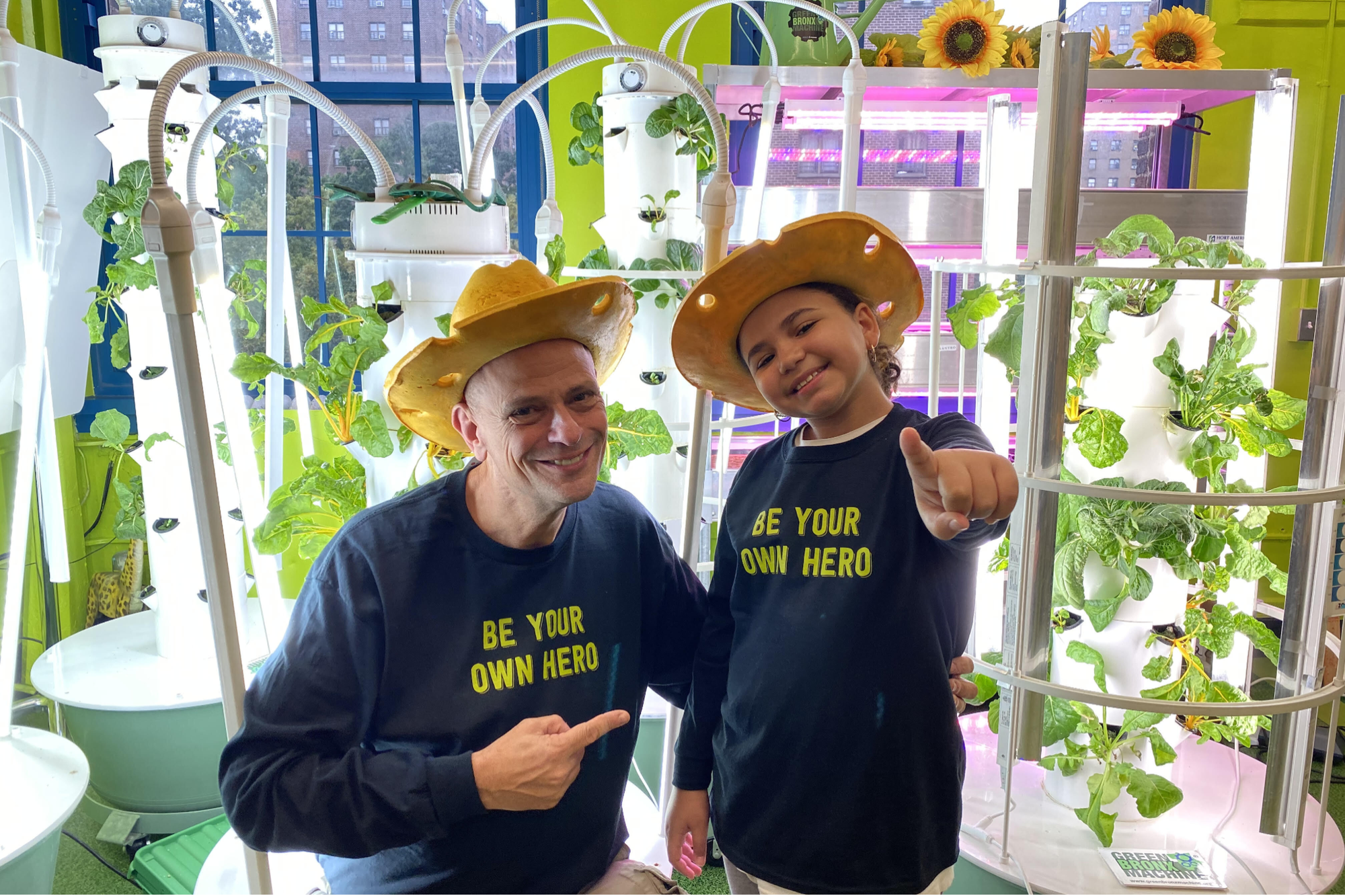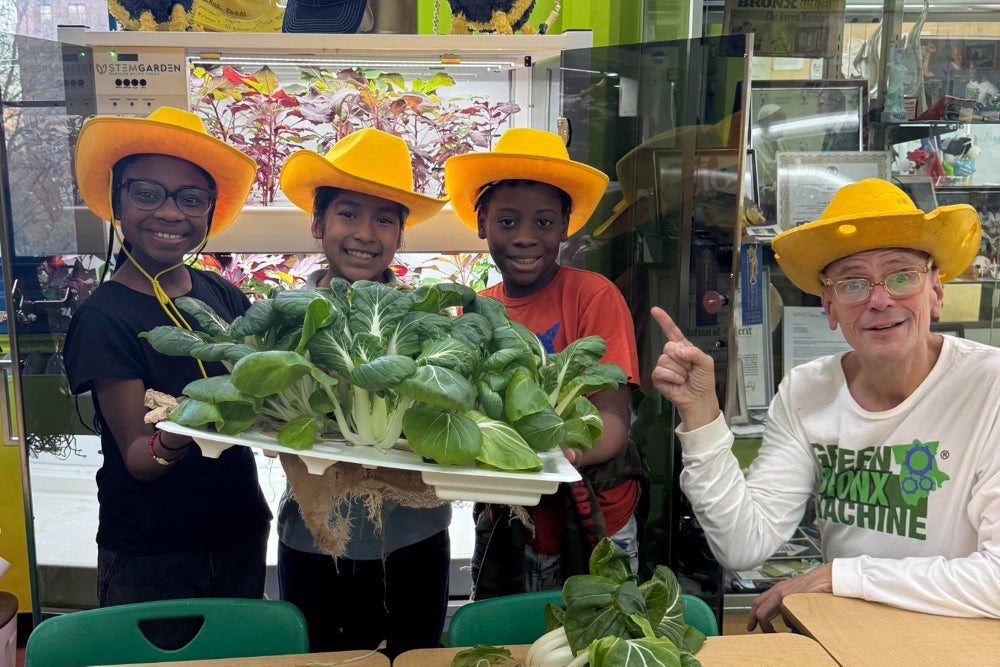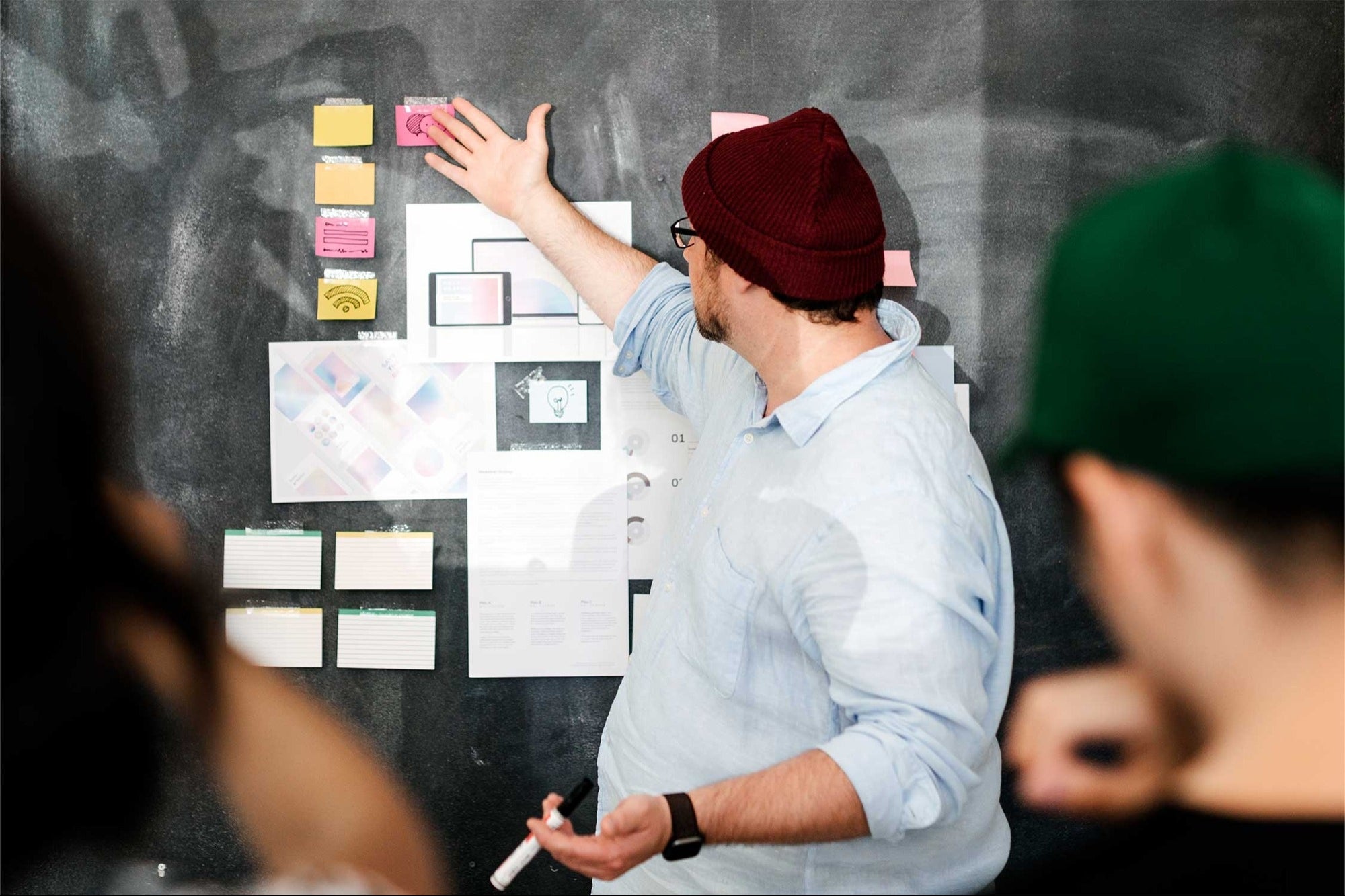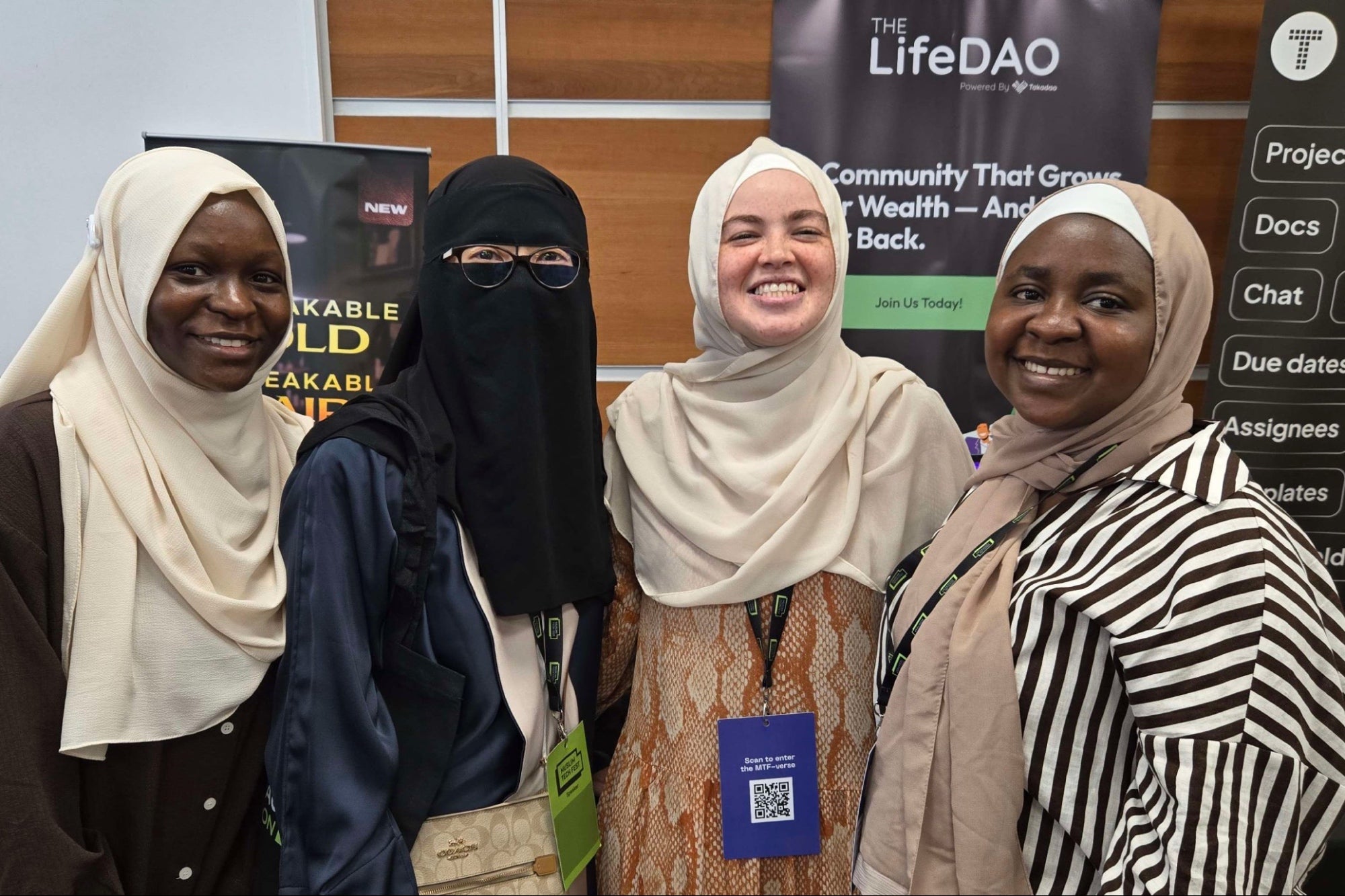From the Bronx to the World: How a Single Teacher is Transforming Education Around the Globe In the heart of the Bronx, a community with some of America's greatest health disparities, filled with chronically underperforming schools and increasing intergenerational poverty, a community where concrete and fast-food outlets outweigh green space, an unlikely revolution is growing.
By BIZ Experiences Middle East Staff Edited by Patricia Cullen
You're reading BIZ Experiences Middle East, an international franchise of BIZ Experiences Media.

In the heart of the Bronx, a community with some of America's greatest health disparities, filled with chronically underperforming schools and increasing intergenerational poverty, a community where concrete and fast-food outlets outweigh green space, an unlikely revolution is growing.
Literally.
Here, a garden blooms, not just with fruits and vegetables but with infinite possibilities. Here, Stephen Ritz, a self-described equity warrior and professor of possibilities, and his wife, Lizette, are transforming this challenged landscape into a rich and verdant model of education, wellness, and community empowerment.
Together, they lead Green Bronx Machine, an award-winning nonprofit that fuses urban agriculture with project-based learning. Their goal: rewrite the narrative around public education in marginalized communities, and in doing so, grow something bigger than food: hope.
"No child rises to low expectations," says Ritz, a lifelong educator and one of the bestselling authors. "It is our collective job to steward our children to a better, brighter future, to move them toward independence, affluence, and influence that flips the status quo and offers limitless opportunities."
For Ritz, a native of the same South Bronx community that is home to his classroom, the process starts with growing food, moving children from being consumers to producers, from eating calorie-rich and processed synthetic substances to producing nutrient-dense, hyperlocal, high-quality food— all within the walls of a classroom.
Setting the Table
Using funds from his own salary, Ritz was the first educator to create an edible classroom, one where children grew enough food to feed an entire school while engaging his most-disconnected students. Taking it further, he then spent two years ideating a comprehensive, all-subject, K-12, Green Bronx Machine Classroom Curriculum. Today, that investment is yielding incalculable returns. Ritz's students, most aged between seven and 12, employ sophisticated hydroponic systems to grow fresh produce year-round. Along the way, their academic scores, attendance, environmental awareness, and nutritional habits improve dramatically.
By turning classrooms into places where learning is hands-on, nourishing, and deeply connected to community life, Ritz is breaking the cycle of geographic determinism. The GBM model is built to combat the compounded challenges students face in neighborhoods like the South Bronx: underfunded schools, food deserts, housing instability, and environmental hazards. In many such communities, fresh produce is a luxury —"food deserts" — a term Ritz loathes, claiming it plays into stereotypes. GBM instead focuses on creating "food destinations," aspirational and inspiring spaces where students grow, harvest, and share what they've cultivated.
Today, GBM's curriculum is used in more than 1,000 schools nationally and internationally, trained over 11,000 teachers who reach over 325,000 students daily. Schools in places as far off as Dubai and as different as rural Appalachia - building foster-care children a business, to downtown Baltimore, and suburban Colorado have adopted the model, each tailoring it to their own needs.
Feeding Minds and Families
Back in the Bronx, where food security is a daily struggle and most students qualify for free or reduced-price lunch, classroom-grown produce goes home in backpacks, feeding both minds and families. Students, who once feasted mostly upon fast food and cheap packaged goods, en route to poor health outcomes, are now becoming vegans who understand that food justice and racial justice are inextricably linked.
Ritz is quick to point out that while resources matter, America's education system suffers from something even scarcer: vision. "In a country that prides itself on opportunity, your zip code still largely determines your outcome in life," he says. "That's unacceptable. We're here to change that narrative."
"Lizette and I are not here to give people fish, we're not here to teach people to fish, we want to build new oceans and new ecosystems," says Ritz. "We're here to restore, regenerate, and ensure that all children have access to opportunities, especially those who have traditionally had the least."
"This work needs to be the norm, not the exception," says Ritz. With that mindset, the Ritzes quit their jobs — Stephen as a public school administrator, Lizette as a management consultant — to create GBM. "I needed to put my stake in the ground, and this is the hill I will die on," he claims, while forever wearing his trademark green shoes and big yellow cheese hat."
A Virtuous Circle
That commitment has paid off — not necessarily financially, but in transforming lives, classrooms, and communities. Before engaging with GBM, few students ate fresh fruits or vegetables. As a result of their participation, 90% of all participating students reported increased consumption of two or more servings of fresh fruits and vegetables daily, and 50% of all participating students consumed twice as many servings of fruits and vegetables post-program as pre-program.
Further, 90% of all participating teachers and principals report that he program provided skills, knowledge, and experiences that their students would not have otherwise received, and that the program enhanced the knowledge and skills used by teachers. What makes GBM especially attractive is its adaptability; it is proven, scalable, and replicable.
 Getting Back to Their Roots: The Bronx is Becoming the Home of Urban Agriculture
Getting Back to Their Roots: The Bronx is Becoming the Home of Urban Agriculture
The program is gaining attention. Ritz has brought students to the White House, counseled U.S. Presidents, hosted industry leaders from around the world, placed students on the stages of major global conferences, and seen them featured on magazine covers. GBM has earned accolades, including Fast Company's 2024 Most Innovative Company, an Emmy Award, Social Innovation Awards, Anthem Awards, and CNN and TMZ Food Hero Awards.
In every leafy green sprouting in a classroom window, in every proud student holding up their first harvest, you can feel the pulse of a movement born not in boardrooms, but in the determination of a single educator who dared to see possibility where others saw decline. "We're not here just growing plants, we are cultivating minds and harvesting hope. This is all about love, teaching children to love the world and to learn to love themselves in the process. Nobody goes broke giving love!"
There's a virtuous circle of success. When students graduate, some continue to work with GBM. Ritz anticipates that when the current crop of students graduates from college and returns home, they will sprout new ventures of their own. "Hope and opportunities are the most powerful seeds we can plant. You can't go from seed to harvest without cultivation in the middle." Ritz and his students are the subject of a new, award-winning documentary, Generation Growth.
Post COVID, with growing health crises, economic and environmental instabilities, Ritz says that growing food, high-performing schools, and happy, healthy children have never been more respected and more impactful than right now. "There is a new, growing, universal awareness, it is race, gender, class, geographically and politically agnostic; simply put, everyone responds to hospitality, kindness, wellness, happy, healthy children, and tasty, nutritious food. The current poly-crisis and our fractured world have a common denominator, one which sends children to school daily and invites everyone to coalesce around a table three times a day, and we are determined to deliver."
Ritz believes GBM's work is just getting started, including an impressive spigot of new products on the horizon. A new YouTube Channel, Green Bronx Machine KIDS!, offers a free curriculum companion with downloadable resources. A completely upgraded, far more extensive, whole-school curriculum is forthcoming, including an ADA-compliant, e-reader version, also suitable for English as a Second Language instruction. And there's a new Canadian curriculum, aligned to provincial standards, as well as a dedicated homeschool curriculum with global applications. New partnerships with the Culinary Institute of America and the Center for Integrating Training & Education will provide nationally recognized, best-in-class, industry training, student and parent micro-credentialing, and credit-bearing, degree-eligible undergraduate and graduate coursework for teachers and administrators.
"We are determined to build bigger tables and more inclusive experiences," who adds: "From our humble corner of the globe, we are determined to change the world, we can't stop, we won't stop, but we need your support! We are seeking handshakes, opportunities, partners, and sponsors. Please join us!" Ritz humbly invites all to join the mission.
Contact him at stephen.ritz@greenbronxmachine.org or 917.873.6449












